First-year university students face accommodation problems, an increasing number of students are having issues finding accommodations.
It’s that time of year again when thousands of students enroll in various programs at the nation’s tertiary institutions, or many students, it’s a turning point in their educational journey as they would have been eligible for free senior high school.
only to discover that they now have to pay for accommodation in addition to their tuition and other expenses.
Even at highly subsidized public universities, many parents find it difficult to pay the huge tuition fees.
This has put quite a lot of pressure on parents and students, forcing some to resort to immoral or unethical means of survival. This negatively impacts their chances of landing the greatest job possible once they graduate.
a consultation to identify a solution with academics, decision-makers, and student parents.
First, let’s look at the number of students enrolling in our public universities and any potential housing issues. The distribution of the time-lapse shows how this number is increasing, with enrollment in public universities rising from about 375,000 in 2020 to 448,000 in 2023.
This represents where the nation is at the moment, and several factors contribute to this. As far as we are aware, the situation is the same at other public universities.
In earlier chats with Joy News, the vice chancellor of the University of Kakus, Professor Johnson Nyako, the vice chancellor of Cape Coast Technical University, Kwaku Adutwum Ayim Boakye, and other academics expressed their concerns.
A growing number of students are having issues securing accommodations.
The government, the university, and the general public all share responsibilities for education, as we all know.
Luckily, the government provided us with a significant area of land when it established the university.
Despite the challenges posed by encroachment, we still have a sizable plot of land that we are requesting private individuals to help maintain and develop into accommodation for the students.
Many have come throughout the years, given a presentation, and signed an MOU, but they never returned.
Why do private investors never return?
Well, I believe it has to do with capital. generally, when we sign an MOU with them, they are in financial need and utilize the MOU to obtain the funds required to finish the project.
Professor: “They have attempted, though I’m sure they haven’t been successful, to introduce something new through the University’s superannuation scheme. We’ve already done one, and this time we’re working on how to introduce another large hostel facility for our students, that’s another area.”
In addition to our efforts to improve the existing facilities, other individuals are also building hostels in the neighborhood. However, they must avoid encroaching on our property.
This university has about 25,000 regular students now, compared to less than 25,000 when I was a student here in the 1980s.Additionally, in certain cases, the students were admitted with accommodations after the deadline, which prevented us from admitting any more students, thus we were unable to admit any of the pupils.
potential for the university to grow, given that both Ghana’s population and its student population are increasing. As such, we must prepared to welcome and educate the new students so they can make significant contributions to the growth of their country.
Furthermore, the parents who pay the tuition are looking for value for their money and benefits, so when your wards graduate from the system with a diploma, post-diploma, BTech, or even a Master’s, the TUC can once again show it.
We need to make an intensive effort because, although the government is making great efforts, especially at the pre-tertiary level where these State schools are emerging, we as the TUC can do much better as a group to gain people’s trust.
We are now offering Masters, and we are running Masters, so they are on the job or they are readily employed or they can readily employ some other person.
Does this mean that the government should be unfair in favor of technical vocational education by providing generous funding and development to make it highly desirable and possibly the top option for everyone?
You’ve stated it and you’ve captured my emotions completely. Having those things around helps with the compelling process.
Insufficient hostel accommodations are the main factor behind the private sector’s involvement.
Prof. Kwaku maintains that, for instance, if someone walks in and sees that we only have 318 beds, they simply look around and decide to go to a university that offers them accommodation instead of staying here.
Even if we are currently in the process of acquiring certain hostels and other accommodations, something as basic as housing is impeding our growth and our capacity to be recognized as a coequal option rather than an average one. These are actual fundamental structures and structural challenges.
Here are some of the interactions Joy News had regarding the situation while they were at the University of Ghana, speaking with some of the students and authorities.
naturally attempting to sum up the circumstances on campus, including the University of Ghana.
The University of Ghana, which is the Premier University and accepts a sizable number of new students, brings up the point regarding universities.
Kenneth Gyasi maintains that when I reached out to Dr. Margaret Amanu, who is one of the University’s heads of the halls, earlier, she stated that they cannot guarantee accommodations on campus for first-year students,
As a result, they randomly assign beds, and 5,000 students contend for it, out of the 3,000 vacant spaces. You are informed in advance that there is no guarantee of accommodation on campus, so you enter a raffle-style system in which the beds are shuffled. Therefore, they cannot guarantee that you will be housed on campus; nevertheless, when they did so, 3,000 students were accommodated.
The remaining 2,000 must, however, find an alternative place to stay.
What is the in-out policy that guarantees a first-year student stays on campus?
Kenneth stated that they did not mention the fact that in the past, first-year students were guaranteed residential permits or housing in one of the school halls; however, things have changed, and some of the students I spoke with expressed bitter regret.
After the first year, 100-level students are open to the in-and-out policy, which states that they are offered accommodation on campus, but in the following years, they must live off campus. In their final year, they are permitted to return to the school halls.
one of the students who’s coming from Tamale has been offered medicine, but she has nowhere to stay, she shuttles from her uncle’s place to school for the main time.
even those who did get accommodation say that there has been an increase and Dr Margaret AMU did confirm to me that even the residential halls or the school Halls have witnessed a 33% increase in it.
so they are all culminating in the accommodation crisis that is on the University of Ghana campus.
One of the students who are lamenting about the accommodation crisis on campus.
As someone who hails from the northern region of Tamales, how are things going,
Where are you staying now and Have you been able to get accommodation on campus?
Well, I’m from Medina, where I live with my uncle.
When did you arrive on campus?
When I arrived yesterday to complete my registration, I was informed that the residential halls were full and I would not be able to access them.
They failed to inform you during the application process that you would not be promised a residential hall, even if you were coming from Tamale, or that you would be penalized for arriving late.
they said accommodations are not guaranteed it’s a random allocation or something, and you might not get it.
You had to apply for it even with a random allocation; did you do so?
No, I didn’t because I believed it was too late to pay my school fees by the time I did.
Have classes begun?
I’m not sure, although a few of my friends insist to have been attending lectures. I heard them say that.
You haven’t started lectures because you haven’t finished registering or because you won’t be provided an apartment on campus, right?
Yes, both of them.
How does this make you feel?
it’s stressful, yes Because the taxi drivers charge a lot.
The residence hall on campus is crowded and only accommodates a limited number of students, according to another Medina-born student.
A few students voiced their annoyance at the state of affairs. Without a doubt, there is a problem on campus and a growing crime concern, but we also want to see a response from the administration and law enforcement.
The private sector involves itself mostly because there are not enough accommodations.
According to Kenneth, the authorities have been acting and providing options to the students who have not been given residential accommodation; they have recommended a few hostels in the area where they can stay.
However, students lament that they are unable to get there because it is too far away.
additionally, they are informing the students of the fact that fraudsters and tricksters have taken advantage of them by promising them new rooms, hostel beds, and other amenities.
As a result, they are warning students to be extremely cautious of these fraudulent individuals who approach them and pretend to have accommodation for them; if they are unable to find housing on campus, they should go nearby.
Do you first agree, based on student concerns, that there is, in fact, an accommodation challenge on campus?
Daniel Opphg Kyeremeh, President of NUGS, stated: “We are aware of the shortage of housing occurring on our various campuses, and I sincerely submit that this has been one of the most heartbreaking moments as far as the students of the National Union of Ghana are concerned.” since we have been arguing and trying to find ways to improve and modify the costs and fees that different hostels charge for the previous five years.
The data indicates that there should be a suitable plan that may be adjusted to accommodate the majority of our students in tertiary institutions, as the fees charged are turning out over 1.4 million students across several institutions.
One of the concerning things right now is that if I receive free senior high school education, graduate with the highest grades, and return to college, I might not be able to pay for the necessities of my postsecondary education.
Some students happened to spend the night in the library.
Daniel says that over the past few years, we have been complaining about how most of our students arrive at school and then, as a result of the housing crisis, some of them sleep in libraries, some on dirty benches, and still others move around the school not even knowing where to put their heads down.
This student finds academics and other associated things challenging, and this year we are seeing a similar issue which is quite heartbreaking, most of our students travel from very far away to come and stay on campus.
However, they don’t even know their faith as to whether they’ll be getting resident or not they come, and to their surprise, they get there
and there’s no accommodation for them and these students are not, and cannot even afford these private hostels out there.
already the hall fees are too high, we are still deliberation how there could be reductions and adjustments, and the student doesn’t even get the hall, not even talk of the hostel prices which are like four times the price of the hall.
So we’ve been preaching this message for a long that if indeed our government values education in our country.
if we want to absorb a lot of our students into the environment and also have a lot of things changing, then we should be able to outline a practicable step as soon as possible, because every year we talk about the hostel prices.
We talk about how the price is Skyrocket yet, we seem not to be seeing anything happening, no changes happening.
as a matter of agency, this particular government that values education in our country should be putting plans in place to help solve these challenges.
you get to the university and they say, the reasons why they are increasing the price, is linked to the fact that now they asked to pay utility bills and a whole lot of bills on their own which normally, a hostel price is supposed to cost like 500 for a hall, is now costing over 2,000 to 3,000 which a normal student who went through the free process cannot even afford.
Concerns of the students regarding the approach to this problem, given that it has long existed and is particularly relevant to The University of Ghana?
Speaking about his experience teaching in Legon, Kwame Gyan, a lecturer at the University of Ghana, stated that he has taught for 25 years, has served as a senior deputy tutor in Aafu Hall, and is still a member of Aafu, so he has a good understanding of what has gone wrong.
This is just one of our collective failings as a nation, nothing more.
Free basic, free assets, and even free tertiary education are all contributing to the backlog of students entering the system. As a result, all the frees are bringing in large numbers, and those who introduced the freeze did not account for these numbers when they introduced it.
There was voting for accommodation at the University of Ghana the previous time, and this is not the first time that this has happened due to system congestion, which has gotten to the point where it is a serious problem.
so virtually, we are doing loto for accommodation, if you are lucky, you get it, if you are not lucky you don’t get it.
at least I know that these public universities have tried to engage in a public-private partnership kind of arrangement allowing private sector people to build hostels on the campuses, but the flip side of it is the private sector people want to recoup their investment so they have to charge economic rates for their hostels, that brings the question of affordability.
ALSO: THE FEDERAL UNIVERSITY DUTSIN-MA RELOCATED TO THE PERMANENT SITE
we should encourage more private-sector investment in hostel development, those who can reasonably afford should be encouraged to go to the private-sector hotels, and the ones who are not able to afford it, be allocated the public or what we call the traditional Halls to those people.
in terms of cost and how they may determine a quick return on investment.
By granting them access to the land on extremely favorable terms and extending the leases’ term, the institutions can also meet them halfway, according to Kwame.
In other words, the investor should deliver the land to the tenant at reasonable rent rather than trying to profit from it. if they have a 50-year lease that may include reasonable rent.
what is the objective of the university?
Gyan said, The objective is to ensure that the students get accommodation, and the universities should provide the land at reasonable rates or the best personal rates, then the Republic of Ghana should find a way maybe to encourage the Ghana infrastructure investment fund, for example, to provide long term financing for people to develop the hostels.
because at the current rate of interest on our commercial Banks, I doubt if anybody will take a loan from the current system of 40% or 38% to build a hostel accommodation, you probably have to charge through the roof to recover your investment.
By now, I think we ought to have held a national consultative conference on this topic because, as you walk around campus and witness someone who traveled from Nanduri for the first time to Accra, carrying their bags and belongings and sitting in a hallway with nowhere to go, we have seen these kinds of situations for years. In these kinds of situations, you feel helpless and it lessens your humanity.
From the Parliamentary member Peter Nortsu Kotoe, who is a member of the education committee.
Firstly, from a policy perspective, voting for accommodation is taking place on the University of Ghana campus for the first time.
As you are aware, the Parliamentary Committee on Education is pressuring the Education Ministry and other relevant parties to make accommodations on campus, so what are you planning to do?
Oppong says that obtaining accommodation for every student on campus has been an issue ever since cost-sharing was implemented in the nation’s tertiary educational system.
What has happened is that, as a country, we have consistently failed to ensure that, as the number of students increases, we should be building more facilities, particularly for housing students on the various campuses of the nation’s universities and other tertiary institutions.
we have failed in that direction, I remember last year the students complained to us about the high cost of accommodation being offered by the private sector, who have put out facilities on the University campuses, and we had to come in to talk to these developers and then the owners of the facilities to make sure that they make accommodation available and then affordable to the students.
If you take the University of Ghana as an example, there should be a practical mechanism or technique to ensure that we expand the number of accommodation facilities in the various institutions. The government alone cannot currently accomplish what is asked of it.
However, I don’t think that 30% of students on the University of Ghana campus will receive housing as a result of the private sector’s involvement.
even if you provide them with an interest-free loan, the schools at a very reasonable interest rate.
They must provide housing for the students while we arrange the terms of payment, including the rent that the students must pay.
To increase accommodations, we need a practical approach.
Peter said that We have presented that idea to the ministry, but how would they be able to recover their investment, pay the interest, and turn a profit if they had to go to the open market and then accept the facility at a very high rate and engage with the government to search for funding, and even for the universities themselves, to establish these amenities for students so they can study with peace of mind.
until we do that it will be very difficult to get accommodation easily available for students, and it is very disturbing, because when you visit the campus, you see the Dilemma which especially the first years students find themselves, it is Unfortunately the out in, is also not working because of the large numbers of students.
the lecturer said they had to toss for them which I think is not the best.
The government needs to come up with a program that assists developers in constructing hostels and makes them available to students.
If not, we will not be able to offer students a high-quality education.
Are you seeking to get the government to talk about this issue at the parliamentary level in any way?
Kotoe maintains that we communicate directly with the Ministry of Education, and we have informed the minister about it.
when we encountered the different hostel operators, particularly on the University of Ghana campus, where we voiced our displeasure with the outrageous prices at which they were receiving the lodging, and we suggested that to the ministry; we believe that they would forward our approval to the president or cabinet for any required action.
As a committee, our only authority is to recommend, and we anticipate that the competent authorities, working via the Ministry of Education, will take up the subject until that is completed.
The accommodation issue at public universities needs to be addressed by the government.
Daniel stated that we are appealing for actions to be taken. One of the problems has always been the lack of financing sources for education and the main statutory budget, which is meant to support the majority of the activities at our numerous campuses, has not been found.
However, if we allowed the private individual to continue building the hostel and all that is his own business, and typically there are no rules regarding the appropriate prices to charge.
good enough if you get various universities to reduce the terms and conditions, they are giving these private hostels to build more hostels on the various campuses, which will go a long way in helping in doing so.
Even with the separation of get funds, we are still in the good graces of the government.
A few years ago, we were able to secure funding and construct many of the classic halls on the majority of campuses.
presented by the Get Fund intervention, and as of right now, the primary strategy funds that are meant to finance the majority of our educational activities have been capped, making it difficult for universities to build these structures regularly.
if that is done, it will go a long way in helping reduce a lot of things, it’s happening on the King campus now.
we should have had a lot of hostels or Halls on the various University campuses, if that happens at a point it will then inform the private individuals who are putting up private halls also hijack their payments because all students are moving to the university halls or university hostels.
ALSO: THE CONTRIBUTION OF SCIENCE TO GLOBAL PEACE AND DEVELOPMENT
the second thing we want to recommend, especially with the University of Ghana now, when it comes to the King campus, the whole application is online, so there’s a duration that is being given for each and everybody to apply.
you not using the quote the loto systems where randomly you are just being given a hall, there you apply, so when there are no available rooms, you get to know that this particular Hall is full so that you could then think through and then find out the plans and measure you’re
going to put in place in getting a hostel, or a different hostel.
We are pleading that if University of Ghana and other universities could do the same system, as we are putting in place to help solve or mitigate the hostel challenge. However, in this case, the structure has not been implemented, so you just come to school and out of the building, you get to know that you didn’t get a hostel or a hall and you’ve made any prior preparations towards that.
The answer and the direction to follow
According to Kwame, we are all aligned as to what should be done, we need to increase the number of available accommodations.
The accommodation crisis is a result of collective failure in the country
but we also have to revisit the question of the residential University system which we inherited from the colonial Masters.
most of us who also went to graduate school abroad, don’t have these large residential universities, in most countries. so now that there is mobility in terms of access to transportation, we should revisit that concept, is it the way to go in terms of aggregating a large number of students living on the same campus as their resident, and their place of learning, or you begin to provide more places of learning and allow people to live at different locations and come to school.
we have to look at it as a country, do we want to continue with the old scheme of the residential type of university or we go the way that most of these other universities in other countries are going, as a nation, look at these things again?
We must use a pragmatic approach to boost accommodations.
Peter said we need to look at our boarding facilities, even right from secondary schools in the country, these are things we inherited from
our Colonial Masters and this is a time for us to take a second look at them.
but in the meantime, we need to make sure that these institutions are not residential, as it happens in other developed countries.
I think we need to make sure that we get the facilities available for the government, it must provide the facilities, and the resources now give getfund the free hand to make sure that they give money to universities to complete the facilities that they’ve started, and have gotten stagnated for over five or 10 years now to make sure that those facilities are completed for use by students.
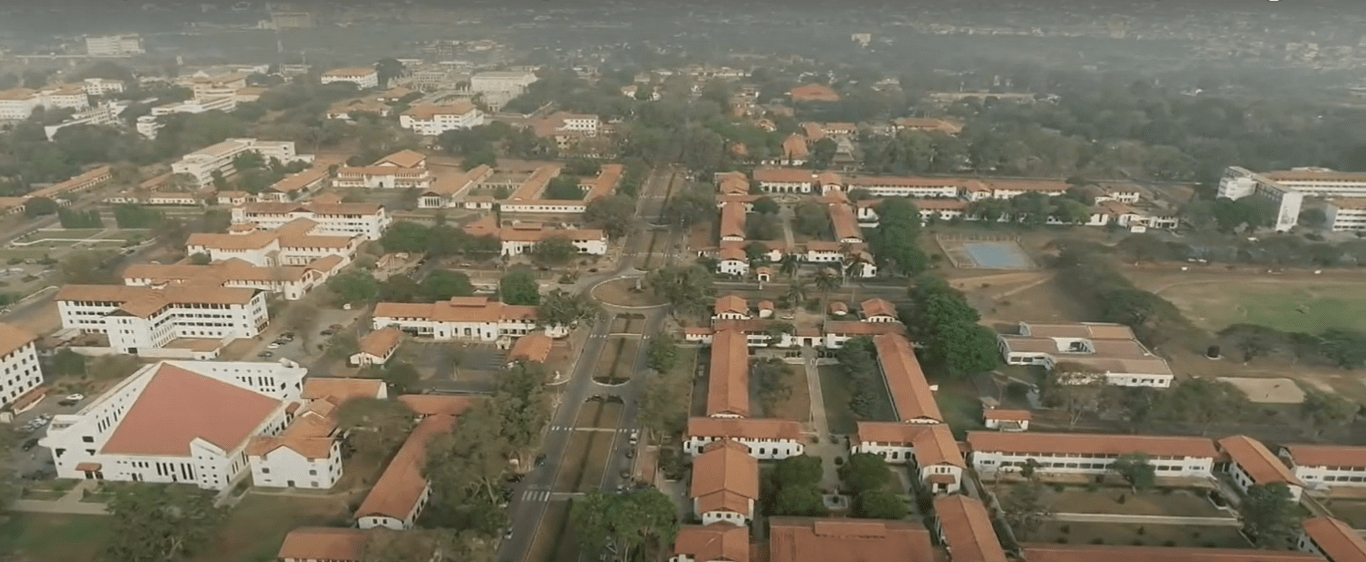
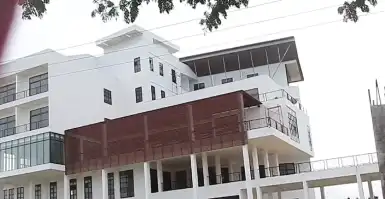
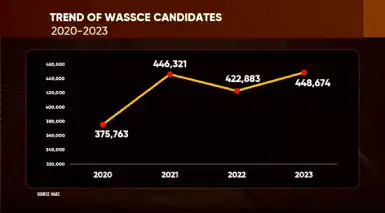

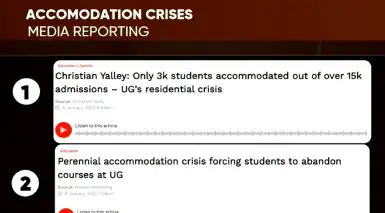
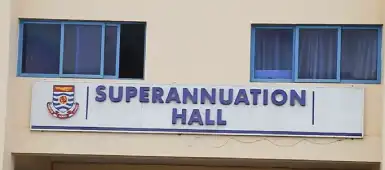

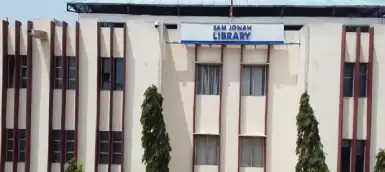
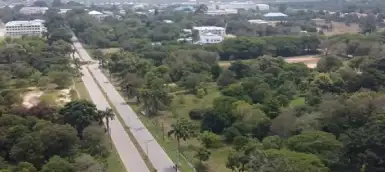

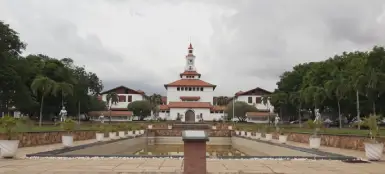

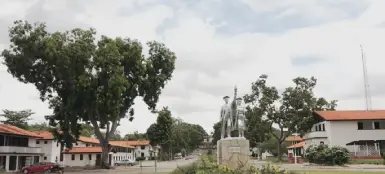
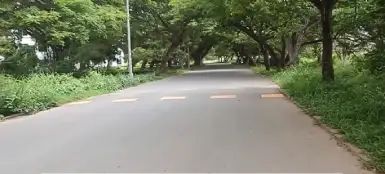
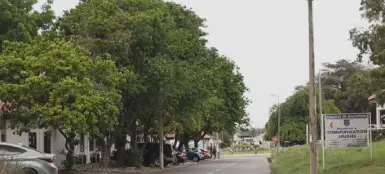
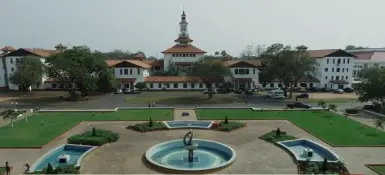
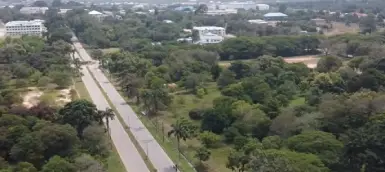
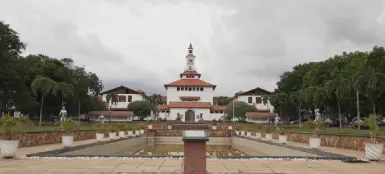
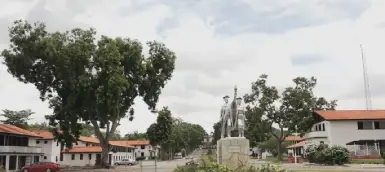
3 thoughts on “University first-year students face accommodation crisis”